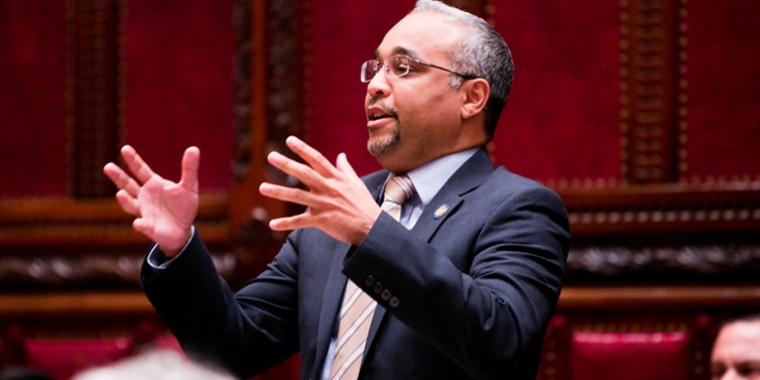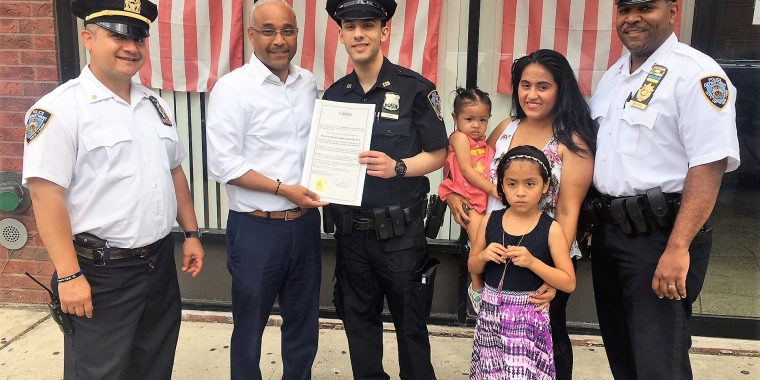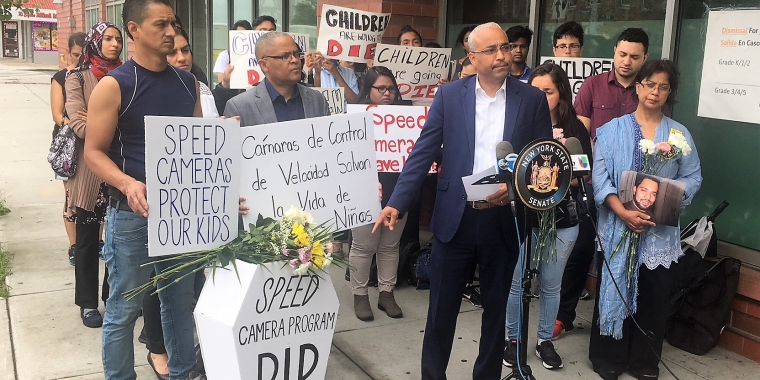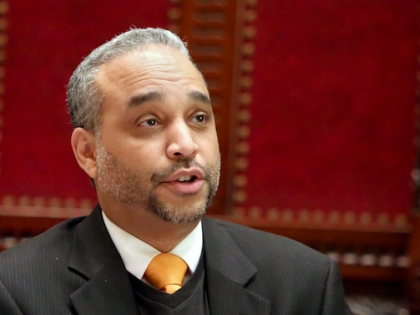
Immigration Leaders Press Paterson to Revoke Enforcement Program
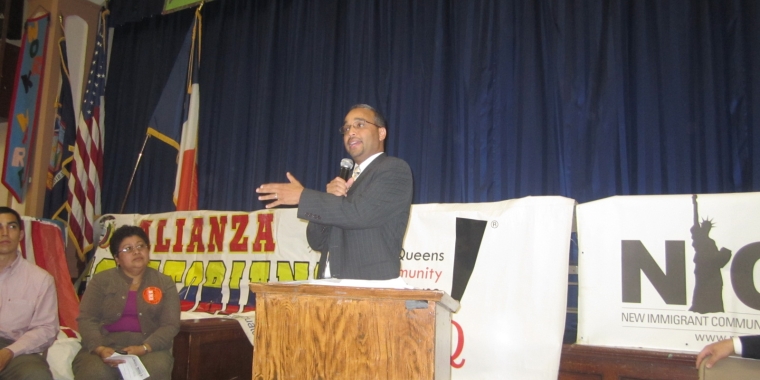
WNYC News
by Monika Fabian
October 20, 2010
Last May, New York signed on to an immigration enforcement program that allows local police to share with federal authorities the digital fingerprints of anyone arrested in the state. The program -- called Secure Communities -- is designed to find and deport undocumented immigrants who have committed serious crimes like murder, kidnapping and threats to national security.
“New York has a public safety interest in identifying and deporting serious alien defendants from state prisons and jails,” said John M. Caher, director of public information for the New York State Division of Criminal Justice Services (DCJS), in a written statement.
According to Caher, DCJS’s Acting Commissioner Sean Byrne signed the program’s memorandum of agreement, which effectively green-lighted Secure Communities in New York, in order to grant localities the option of participating.
“While we are very cognizant of the civil rights of immigrants, we are equally cognizant of the fact that this State [sic] is a premier target for terrorism,” said Caher. “[Byrne] did not think it would be responsible to deny localities the option of participating in this initiative if they were inclined to do so.”
The Secure Communities program began its phased rollout two years ago in locations where ICE found “[criminal aliens] are most likely to reside.” Currently a total of 33 states have opted into Secure Communities (the remaining 17 projected to be add by 2013), but states along the southern border with Mexico along with Florida, Virginia, and Maryland have the highest concentrations of activated Secure Communities juridictions.
The federal program admittedly casts a wide net by collecting and verifying the biometric information of “all individuals and booked into custody” in an apparent effort to avoid racial profiling but local immigrant rights leaders say it has resulted in a sweep of all immigrants, not the just dangerous ones. They say Secure Communities has led to the detention and deportation of immigrants who were arrested for minor offenses or who were not even charged with a crime.
The New York Times reported, “the national average of Secure Communities deportees with no criminal records was about 26 percent, but that figure also varied wildly around the country. It was 54 percent in Maricopa County, Arizona, whose sheriff is notorious for staging indiscriminate immigration raids. In Travis County, Texas, it was 82 percent."
According to Immigration and Customs Enforcement (ICE) records obtained by the Benjamin N. Cardozo School of Law, the Center for Constitutional Rights, and the National Day Laborer Organizing Network through a Freedom of Information Act request, 79 percent of individuals deported through the Secure Communities program from October 2008 through June 2010 had no criminal record or were arrested for minor offenses like traffic violations.
“The Department of Homeland Security can inform the local enforcement agency that they should not release that person, even if there are no charges or the charges have been dropped, so that they can start deportation proceedings,” said Angela Fernandez, executive director of the Northern Manhattan Coalition for Immigrant Rights.
Fernandez and other immigrant advocates, including State Senator Jose Peralta, are calling on Governor David Paterson to withdraw New York from the program. They worry it will discourage undocumented immigrants from seeking police assistance in emergency situations.
“You create a lot of fear in the streets where no one’s going want to talk to the police,” said Peralta, whose Queens district includes the immigrant-dense neighborhoods of Corona, Elmhurst, and Jackson Heights. “Because, why should they? If anything happens and there's an altercation, if they get arrested, then they're finger printed and that information goes directly to ICE. So it becomes a very dangerous tool.”
With Governor Paterson not running for reelection, immigrant leaders see an opportunity for him to take the controversial step of removing New York from the program before the end of his term.
They feel Paterson has shown himself to be sensitive to the issue of immigrant deportation during his tenure, and believe that revoking Secure Communities would be a suitable swan song.
“If Governor Paterson has not rescinded the memorandum of agreement before his term is up, it will really obscure the legacy that he has built that has been an incredible legacy that has supported communities of color and immigrants,” said Fernandez. “It will be the headache of the new administration if this agreement is not rescinded.”
Andrew Cuomo’s campaign issued a statement expressing concern about Secure Communities.
“We cannot afford to scare our neighbors out of contacting the authorities to report a crime simply because of their immigration status. We also cannot afford the financial burden of doing the federal government's job.”
The statement concluded by saying that the Democratic candidate would “closely review” the program as governor.
Carl Paladino, on the other hand, has not commented on Secure Communities, but in an interview last month, the Republican candidate stated he supports deporting undocumented immigrants.
Since May, all New York sheriffs have been able to implement Secure Communities in their localities. No community in New York has started sharing digital fingerprint data with ICE, but according to advocates it could happen at any time.
